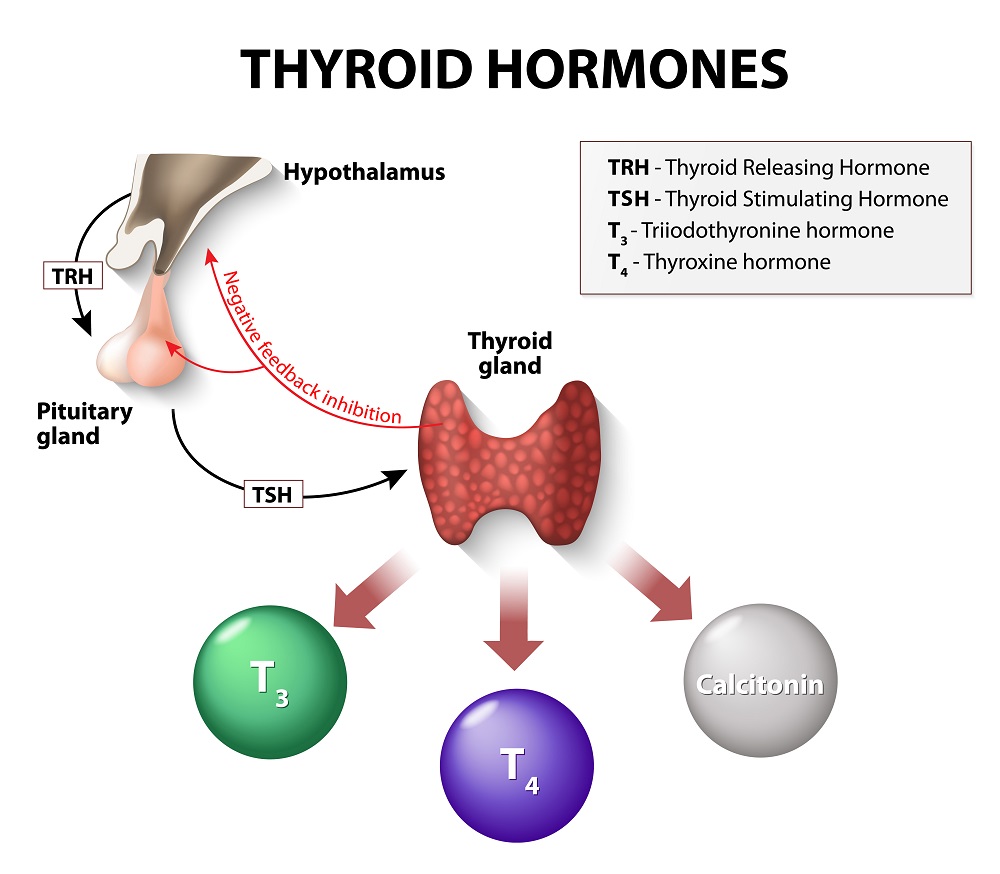What is the function of thyroid?
Thyroid gland produces two families of metabolic hormones (T3 (liothyronine) and T4 (levothyroxine) and calcitonin. Thyroid gland is also responsible for storing for up to 90% of total body iodine. The relationship between iodine and thyroid disease has been well known and iodine insufficiency has been associated with goiter. Thyroid hormones play a major role in regulation of metabolism. Calcitonin plays an important role in calcium metabolism and reducing calcium level in blood. It directly acts on bone and kidneys to decrease the plasma levels of calcium. Overall thyroid hormone has a slow metabolism with a half-life of about 7 days.
Simply Put: The purpose of your thyroid gland is to make, store, and release thyroid hormones into your blood. These hormones affect almost every cell in your body, and help control your body’s functions. If you have too little thyroid hormone in your blood, your body slows down. This condition is called hypothyroidism. If you have too much thyroid hormone in your blood, your body speeds up. This condition is called hyperthyroidism.

